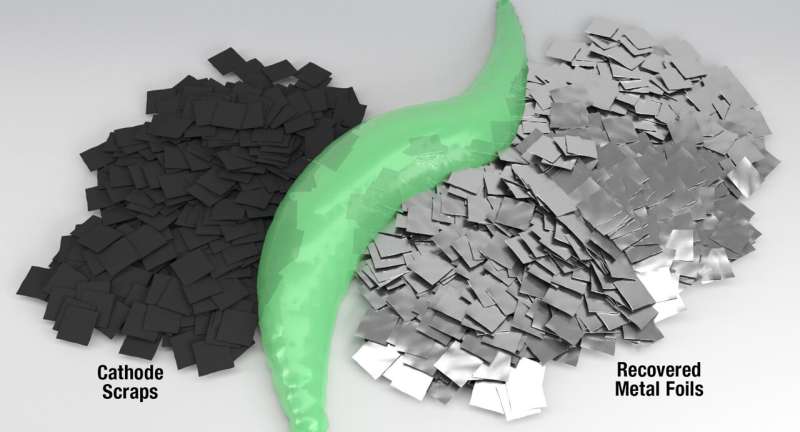Environmentally friendly process to recover valuable materials from used lithium-ion batteries

Scientists at Oak Ridge National Laboratory have developed a solvent that results in a more environmentally friendly process to recover valuable materials from used lithium-ion batteries, supports a stable domestic supply chain for new batteries and keeps old ones out of landfills.
Spent batteries are typically broken down using smelting, an expensive, energy-intensive process that releases toxic gas. The ORNL-developed alternative is a wet chemical process using triethyl phosphate to dissolve the binder material that adheres cathodes to metal foil current collectors in Li-ion batteries. The result is efficient recovery of cobalt-based cathodes, graphite and other valuable materials like copper foils that can be repurposed in new batteries.
"With this solvent, we're able to create a process that reduces toxic exposure for workers and recovers valuable, undamaged, active NMC [nickel-manganese-cobalt] cathodes, clean metal foils and other materials that can be easily reused in new batteries," said ORNL's Ilias Belharouak.
More information: Yaocai Bai et al, Recovery of Cathode Materials and Aluminum Foil Using a Green Solvent, ACS Sustainable Chemistry & Engineering (2021). DOI: 10.1021/acssuschemeng.1c01293

















